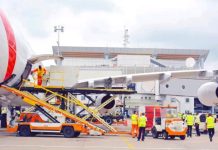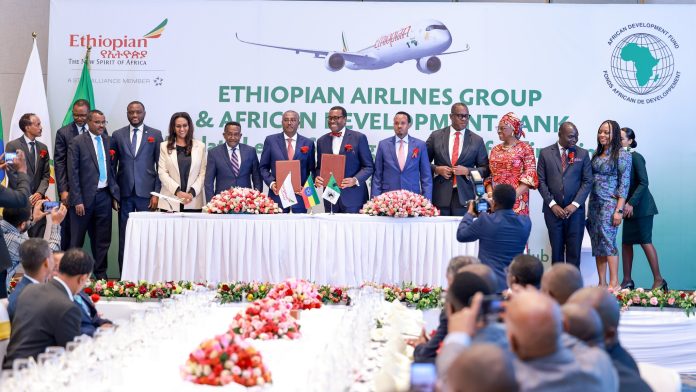The African Development Bank (AfDB) has committed to lead the financing of Ethiopia’s largest-ever infrastructure project, the Bishoftu International Airport, in partnership with Ethiopian Airlines Group. Under a landmark Mandate Letter signed in Addis Ababa, the AfDB will act as Mandated Lead Arranger, providing $500 million in direct financing and mobilizing an additional $7.5 billion from other sources.
The new greenfield airport, located 40 km southeast of Addis Ababa in Bishoftu, will be built in two phases. Phase one will have an annual capacity of 60 million passengers, rising to 110 million in phase two, alongside facilities to handle 3.7 million tonnes of cargo and parking for 270 aircraft. Once complete, it will be the largest airport in Africa and among the top aviation hubs globally.
Ethiopia’s Finance Minister, Ahmed Shide, hailed the project as the single largest investment in the country’s history and a critical step toward positioning Ethiopia among the world’s top 20 aviation hubs by 2035. “This investment addresses the region’s rapidly growing air traffic demand and will alleviate congestion at Addis Ababa’s Bole International Airport, which is approaching its annual limit of 25 million passengers,” Shide said.
AfDB President Dr. Akinwumi Adesina called the Bishoftu project a “game changer” for African aviation, praising Ethiopian Airlines as a model of resilience and innovation. “Ethiopian Airlines is indispensable for connecting capitals, peoples, and markets across Africa. Even during the COVID-19 pandemic, it kept flying, converting passenger cabins into cargo carriers to deliver goods, vaccines, and medical equipment worldwide,” he said.
The AfDB has a long history with Ethiopian Airlines, including a $160 million corporate loan in 2016 for fleet expansion. The airline — Africa’s largest — now operates more than 140 aircraft and plans to grow its fleet to 240 as part of its 2040 growth strategy. In the last fiscal year, it recorded $7.6 billion in revenue and carried 19 million passengers.
The Bishoftu airport will anchor an aerotropolis designed to stimulate trade, tourism, logistics, and job creation, supporting the African Union’s Agenda 2063 and the Single African Air Transport Market (SAATM). It will complement Bole International Airport, which will retain domestic operations.
Adesina commended the Ethiopian government for quickly and transparently relocating and compensating 2,800 households affected by the project. “We will deliver, so Ethiopia can deliver for its people,” he affirmed.
Construction is scheduled for completion by 2030, with Bishoftu International Airport set to redefine air connectivity across Africa and position Ethiopia at the heart of global aviation.
















